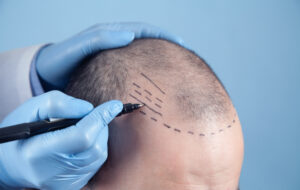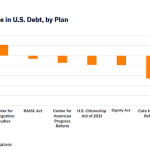
Hair loss can be a frustrating and challenging experience for many people.
Hair transplants have become a popular solution for those seeking to restore their hairline and regain confidence. However, many people are left wondering whether or not hair transplants last forever.
In this article, we will explore the science behind hair transplants, the longevity of hair transplants, maintenance and aftercare, and the future of hair transplants.
The Science Behind Hair Transplants
The science behind hair transplants is relatively straightforward. During the process, hair follicles are taken from a donor area (usually the back of the head) and transplanted into the recipient area (where the hair loss has occurred).
There are two primary types of hair transplants: Follicular Unit Transplantation (FUT) and Follicular Unit Extraction (FUE). FUT involves removing a strip of skin from the donor area and dissecting it into individual follicular units for transplantation.
FUE, on the other hand, involves extracting individual hair follicles directly from the donor area and transplanting them to the recipient area.
The success rate of hair transplants Turkey is high, with most patients experiencing significant hair growth within six to twelve months after the procedure. However, the longevity of hair transplants can vary depending on several factors, including the patient’s age, the extent of hair loss, the quality of the hair follicles, and the surgeon’s skill.
The Longevity Of Hair Transplants
Many people mistakenly believe that hair transplants are a permanent solution to hair loss. While hair transplants can last long, they are not guaranteed permanent solutions. Hair loss can continue in other areas of the scalp, and the transplanted hair may thin over time.
Factors that affect the longevity of hair transplants
Proper maintenance and aftercare are crucial for maintaining the longevity of hair transplants. Patients should avoid exposing their scalp to direct sunlight, avoid harsh chemicals or heat styling, and follow their surgeon’s instructions for shampooing and conditioning their hair.
Lifestyle changes such as quitting smoking, reducing alcohol consumption, and following a healthy diet can also increase the longevity of hair transplants.
What Are Some Do And Don’ts After A Hair Transplant?
After a hair transplant, it’s important to follow proper aftercare instructions to ensure the success and longevity of the procedure. Here are some do’s and don’ts to keep in mind:
Do’s:
Follow your surgeon’s instructions for post-operative care and medications.
Avoid strenuous activities or exercise for at least a week after the procedure.
Keep your scalp clean and dry. Gently wash your hair with mild shampoo as instructed by your surgeon.
Sleep with your head elevated to reduce swelling.
Wear loose-fitting hats or headwear to protect your scalp from the sun.
Don’ts:
Don’t touch or scratch your scalp, especially the transplanted area.
Don’t expose your scalp to direct sunlight or heat, such as hairdryers or styling tools.
Wait to swim or immerse your head in water for at least two weeks after the procedure.
Avoid taking blood-thinning medications or supplements for at least two weeks after the procedure. Avoid smoking and alcohol consumption, as it can slow the healing process and affect hair growth.
Following these do’s and don’ts can help ensure the success and longevity of your hair transplant. It’s essential to discuss any questions or concerns with your surgeon and follow their specific aftercare instructions for optimal results.
The future of hair transplant technology and research is promising. Researchers are exploring new techniques for extracting and transplanting hair follicles, such as robotic hair transplantation and stem cell therapy. These advancements may improve the success rate and longevity of hair transplants.
While hair transplants can be an effective solution for hair loss, they are also becoming affordable; for example, hair transplant cost Turkey range between €1600 – €2450
The longevity of hair transplants can vary depending on several factors, including maintenance and aftercare. Follow your surgeon’s instructions for proper aftercare and seek medical attention if any complications arise.
With the continued advancements in hair transplant technology and research, you can expect to see even more promising solutions for hair loss.
Read more:
Hair transplant popularity






